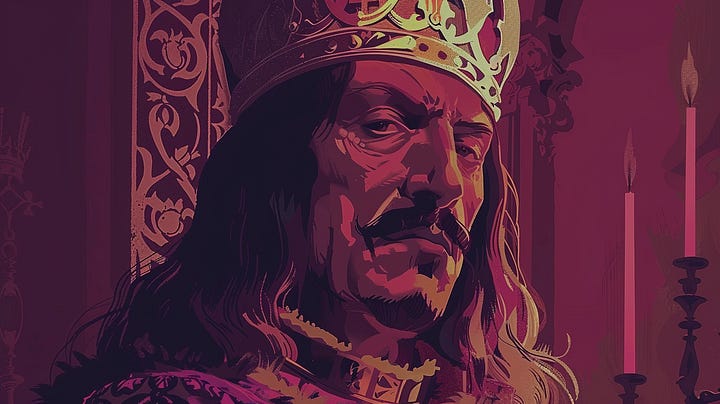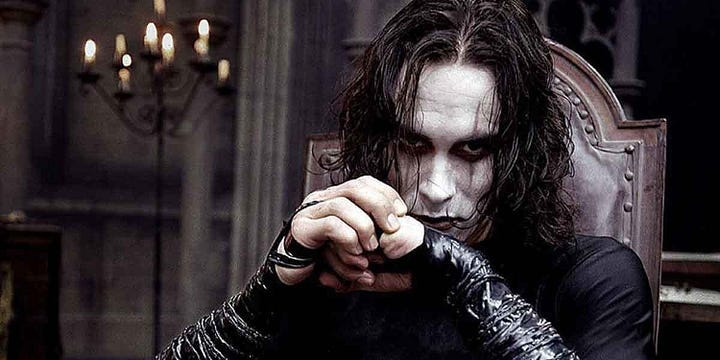Honor in Shadows: The Magnetic Pull of the Black Knight Archetype
Explore the Black Knight archetype - characters torn between loyalty and darkness. From Magneto to Maximus, see how flawed heroes
The late '90s—it really was like belonging to a secret society, especially for comic fans. Walking into those dusty, cramped comic shops felt like stepping into some hidden world that only a few knew how to navigate.
Every issue was a discovery, every character a new obsession.
And then, finding *Warhammer*? That was another level entirely. You weren’t just collecting stories; you were building a universe in miniature, one carefully painted figure at a time. It was almost like being part of a gritty, sprawling saga, where each detail felt like your own piece of a living world.
And then there was *X-Men*. When that first movie hit theaters in 2000, it didn’t feel like your typical superhero movie; it felt like something altogether new. Hollywood was notorious for treating comic adaptations like they were mere popcorn fluff, something shiny and shallow. But *X-Men* changed that. The film respected the comics, grounding the powers and struggles in something that felt almost plausible—like these characters could walk right out of the screen and into our own lives. And standing at the center of it all was Magneto.
Ian McKellen’s Magneto wasn’t just some stock villain. He was a survivor, shaped by real trauma, a man whose pain ran so deep you couldn’t help but feel its echo. He wasn’t out to conquer the world on a whim; he was fighting for his place in it, for his people’s survival. His intensity wasn’t about ego—it was about a cause, one you could almost, almost understand. McKellen brought this aching complexity to Magneto, turning him into that dark knight archetype—the antagonist who, despite everything, you find yourself rooting for. You may not agree with his methods, but you get it.
And that’s what made X-Men a game-changer. For the first time, a superhero movie peeled back the layers, showing us that comic book characters didn’t have to be one-note heroes or villains.
They could be real, messy, layered people whose struggles felt, in some way, like our own. That movie did more than entertain; it set a new standard, a reminder that the world of capes and mutants could dig deeper, reach further.
For those of us who grew up flipping through the pages of those comics, it was like watching magic become real.
Now, looking at today’s characters, it’s hard not to wonder—how many of them are pushing those same boundaries? Not many, honestly. And maybe that’s why Magneto still resonates. He reminds us that sometimes, the best characters are the ones that make us question whose side we’d really be on.
The Black Knight Across Myth and History
Magneto’s tragic honor ties him to centuries-old figures in myth and history. The Black Knight archetype stretches far and wide, embodying figures from the flawed heroes of ancient tales to historical figures whose dedication took them to ruthless lengths.
Fallen Heroes in Myth
Sir Lancelot is revered in Arthurian legend as one of King Arthur’s finest knights, yet his love for Guinevere makes him both a hero and a betrayer. Lancelot’s loyalty and love lead him to secrecy, torn between his duty to Arthur and his devotion to Guinevere. This love tarnishes his knightly honor, transforming him into a Black Knight by virtue of his loyalty, ultimately isolating him from the fellowship he once held dear.
Achilles, while perhaps better known for his heroic stature, also has moments of pure, Black Knight wrath in The Iliad. When his friend Patroclus is slain, Achilles’ pain twists him into a force driven by vengeance and disregard for anything beyond personal justice.
His wrath blinds him to his heroic origins, showing how even the noblest warrior can be corrupted by the weight of loyalty and loss.
Vlad the Impaler and Guy Fawkes, Black Knights of History
Historical figures like Vlad the Impaler and Guy Fawkes are equally vivid embodiments of the Black Knight.
Vlad III of Wallachia, infamous for his brutal tactics in defense of his people, became a figure of both legend and terror. His dedication to his homeland turned him into an intimidating force, revered by some, feared by others. Vlad’s legacy as a defender blurred with his cruelty, earning him the complex label of a Black Knight in history.
Guy Fawkes, known for the Gunpowder Plot of 1605, is remembered for his extreme methods in pursuit of religious freedom. Though his plan ultimately failed, Fawkes’ willingness to go to great lengths made him a polarizing figure — hailed by some as a hero of resistance, condemned by others as a threat. His commitment to his cause, regardless of the consequences, solidified his role as a Black Knight, a rebel with a deeply personal code of honor.
Key Traits of the Black Knight
What truly defines the Black Knight archetype? Characters like Magneto and Vlad the Impaler aren’t merely anti-heroes or villains; they have distinct traits that set them apart.
Unwavering Loyalty: Their loyalty, whether to a cause, person, or code, is unbreakable — even if it isolates or warps them.
A Tragic Flaw: Often, a deep-seated flaw like pride or vengeance drives them toward darker paths, revealing both their strength and human vulnerability.
Moral Ambiguity: They rarely fit neatly into good or evil, following personal codes that defy traditional justice but ring true to their core beliefs.
Isolation and Alienation: This unwavering loyalty often leads them to isolation, giving them a solitary edge and making their convictions stronger, undiluted by external influences.
Redemption or Ruin: They typically face a fate of redemption or total ruin, cycling between hope and despair in a quest that may end tragically.
Shades of the Black Knight: Five Types and Their Cinematic Parallels
The Black Knight archetype shows up in varied forms, each with a distinct twist on honor and darkness. Here are five types, each with a movie character that exemplifies them:
The Fallen Hero
Once noble, this Black Knight has strayed due to disillusionment or betrayal. Anakin Skywalker from Star Wars is a classic example. He begins as a protector, but personal pain and a sense of betrayal lead him to dark choices, transforming him into Darth Vader.
The Vengeful Crusader
This character’s quest for justice or revenge drives them to brutal lengths. In Gladiator, Maximus becomes the Vengeful Crusader after losing his family and home, seeking justice at all costs, even if it means crossing moral lines.
The Reluctant Anti-Hero
Torn between doing what’s right and surviving their own way, these characters may resist the mantle of heroism. The Punisher in Punisher: War Zone embodies this; he uses violent tactics to fight crime, operating outside the law and struggling with his brutal methods.
The Cursed Guardian
Bound by loyalty or duty, these knights suffer through impossible situations for the sake of others. Alonzo Harris in Training Day becomes a twisted enforcer, his sense of duty warped by a corrupt environment, pushing him to justify even his worst actions.
The Tragic Outcast
Shunned or misunderstood, this type follows a personal code that alienates them. In The Crow, Eric Draven rises from death to avenge his loved one, embracing an existence that others fear and misunderstand, making him a Black Knight of supernatural proportions.
Magneto’s Impact on X-Men: A Complex Hero or Villain?
In X-Men, Magneto’s journey is what gives the narrative its depth, elevating the film from action-packed spectacle to philosophical debate. Unlike traditional villains, Magneto is more than just an obstacle; he represents a path that every X-Men member, and even viewers, must grapple with — a path marked by trauma and unbending conviction. Magneto’s portrayal forces us to question the nature of justice, survival, and loyalty, blurring the lines between right and wrong. Magneto’s loyalty to mutantkind transforms him into a complex Black Knight.
In defying society, he embodies the Black Knight’s isolation, forced into conflict by a world that rejects him.
Characters like Magneto, Maximus, and Guy Fawkes show us the high cost of loyalty and conviction. The Black Knight’s journey asks us if we, too, could walk a path where loyalty becomes a dark force — one that defines and destroys. The Black Knight stands as a powerful reminder that the line between hero and villain often depends on perspective, showing that, for better or worse, some heroes live in shadows.
So, ask yourself: could you follow the path of the Black Knight? Or would you seek the light?









